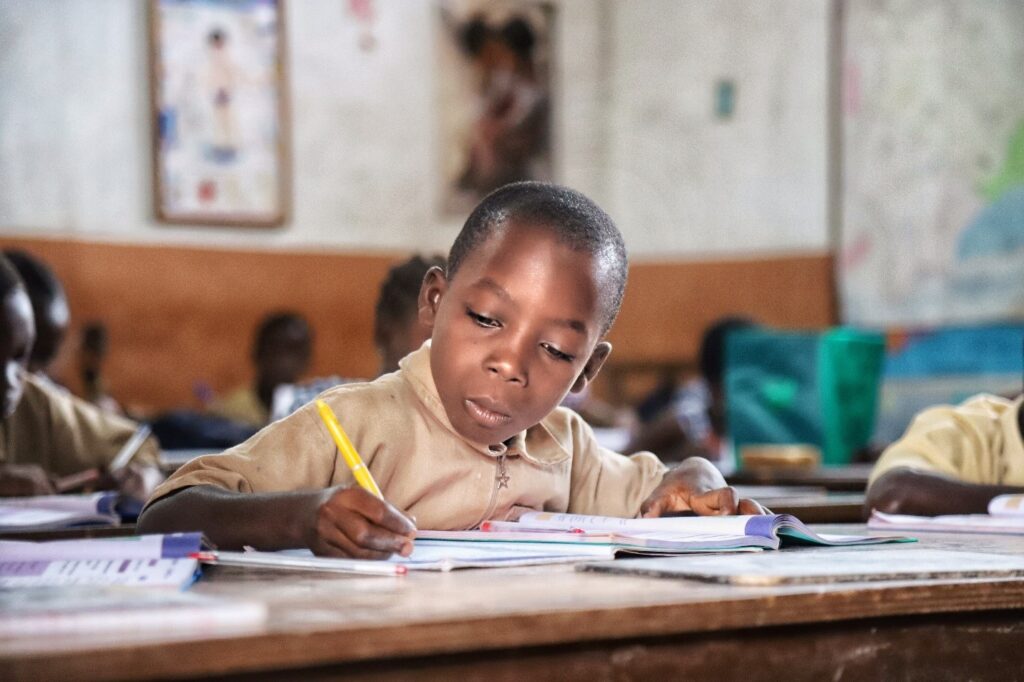Education serves as the bedrock of development, and in Nigeria, much like in countless other nations, the challenge of high school dropout rates persists. These elevated dropout rates bring about far-reaching consequences, such as restricted economic opportunities and the perpetuation of cycles of poverty.
Lack of access to high-quality education, particularly in rural areas, is a major factor in Nigeria’s high school dropout rates. The government must devote funds to improving infrastructure, hiring qualified teachers, and providing enough learning resources in order to address this problem. Projects like building more schools and making sure they are well equipped have a huge impact on student retention.

Additionally, the establishment of conditional cash transfer initiatives may prove to be effective motivators for families to keep their kids in school. These programmes, which provide financial assistance to families in exchange for their children’s regular attendance at school, have a proven track record of effectiveness in a variety of international settings and ought to be customised to Nigeria’s particular conditions.
High educational expenses including tuition, uniforms, and textbooks may discourage some families from enrolling their children in school. The government should investigate measures targeted at lowering or eliminating these fees in order to prevent dropout rates. In other nations, methods like scholarships, grants, and free lunches for students have been found to be successful.
School dropout rates are frequently significantly influenced by socioeconomic variables. Children may be forced to drop out of school due to problems including poverty, child labour, and early marriage. Comprehensive social safety nets, measures to promote vocational training, and public awareness campaigns emphasising the importance of education are all required for a successful response to these difficulties.

Within the education ecosystem, teachers stand as its bedrock, with their motivation and competence exerting a direct impact on student retention. Sustained training, equitable compensation, and acknowledgment for educators can elevate their spirits and dedication to their pupils. Well-prepared and inspired teachers are poised to cultivate a positive learning atmosphere, thereby diminishing the prevalence of dropout rates.
Community participation is critical in reducing school dropout rates. Schools should work actively with parents, community leaders, and community-based organisations. These collaborations can result in initiatives such as after-school programmes, mentorship, and support networks that give students the motivation they need to stay in school.
To effectively address school dropout rates, precise data collection and monitoring methods are an absolute necessity. Monitoring dropout rates on a regular basis, identifying vulnerable demographics, and understanding the underlying causes of cessation allows authorities to design interventions to address individual needs.

Furthermore, there’s a pressing need to champion girls’ education in Nigeria. Girls frequently encounter distinctive hurdles in their educational journey, entailing cultural prejudices and premature marriages. The advancement of girls’ education, accomplished through awareness initiatives, incentives, and gender-responsive policies, holds the potential to curtail dropout rates significantly among female students.
In order to effectively address the complex issue of school dropout rates in Nigeria, a thorough and diversified strategy is required. This entails expanding access to high-quality education, putting cash transfer programmes into place, reducing the cost of education, addressing underlying socioeconomic factors, improving teacher preparation, encouraging community engagement, closely watching dropout rates, and vehemently advocating for girls’ education.
By adopting this holistic strategy, Nigeria can take substantial steps towards ensuring that its children remain in school, securing the education they rightfully deserve. Education, being not only a fundamental human right but also the key to a brighter future, holds the potential to uplift both individuals and the nation as a whole.
Sources
- https://fassjassr.com.ng/index.php/assr/article/download/43/37#:~:text=The%20findings%20also%20revealed%20that,employment%20and%20abolishing%20child%20labour.
- https://blog.mustardinsights.com/in-africa/school-dropout-rate-in-africa-worsens-as-nigeria-ethiopia-lead-the-pack-mEEvB#:~:text=Lead%20the%20Pack-,Nigeria%20(Africa’s%20largest%20economy)%20is%20described%20as%20the%20country%20with,and%20the%20constant%20industrial%20actions.
- http://eslplus.eu/15-effective-strategies-for-dropout-prevention
- https://www.sokedureview.org/index.php/SER/article/download/78/242/




